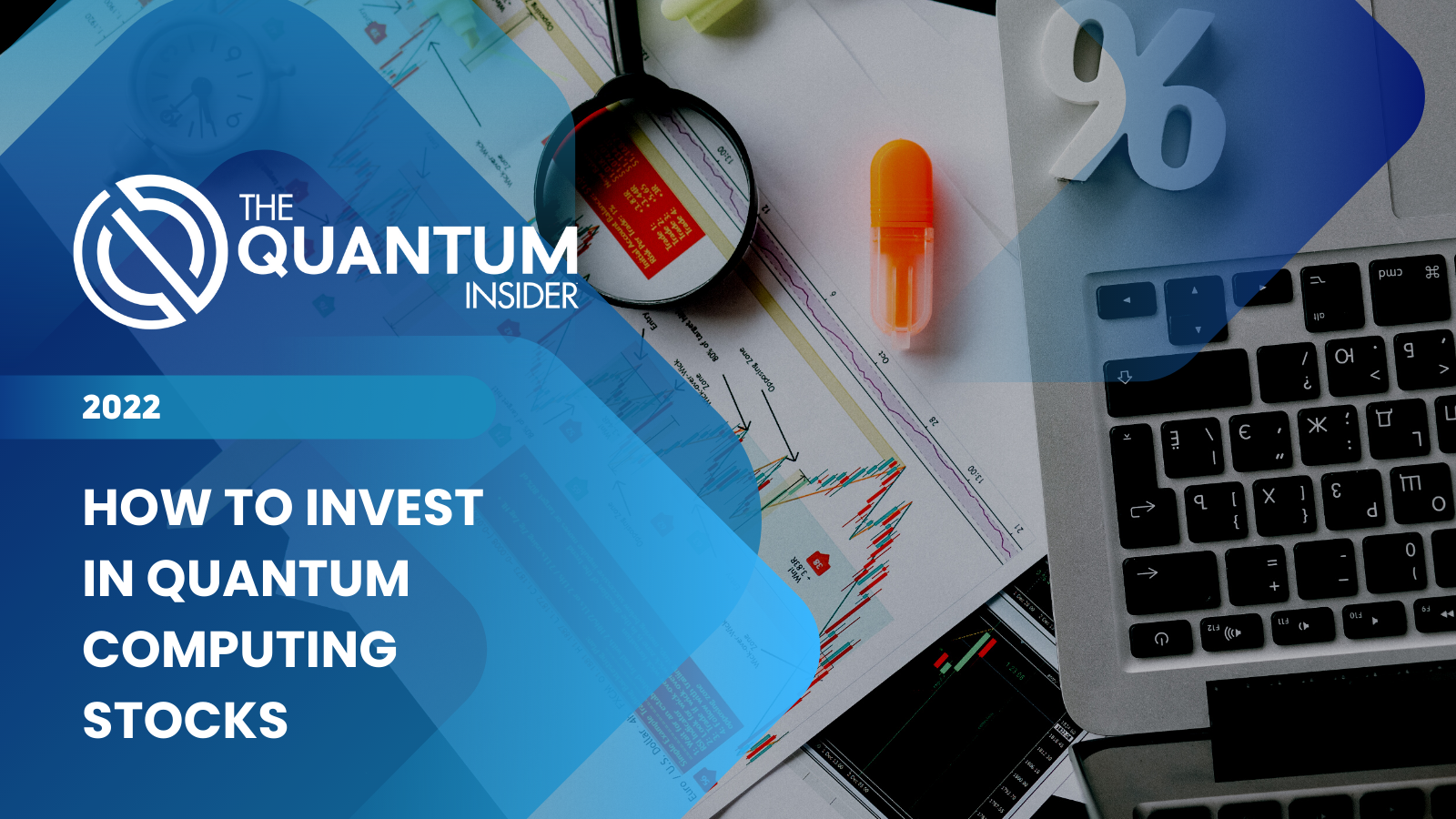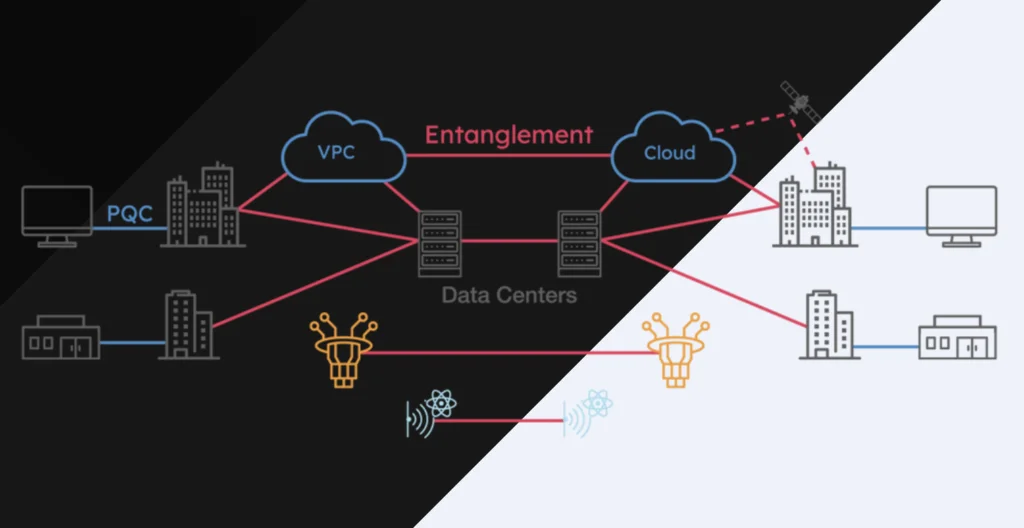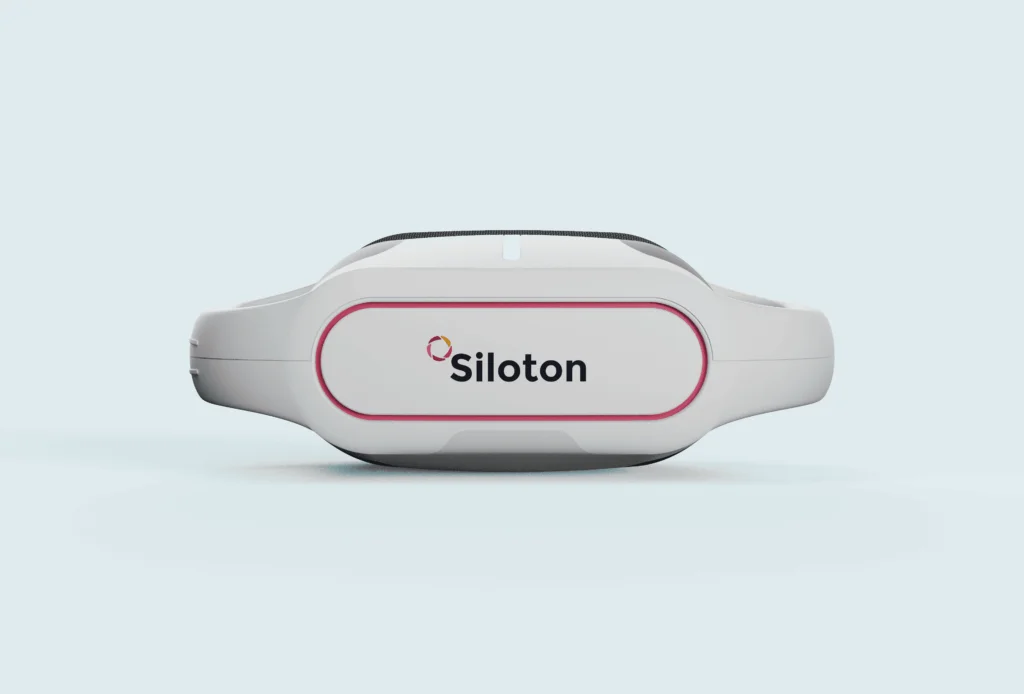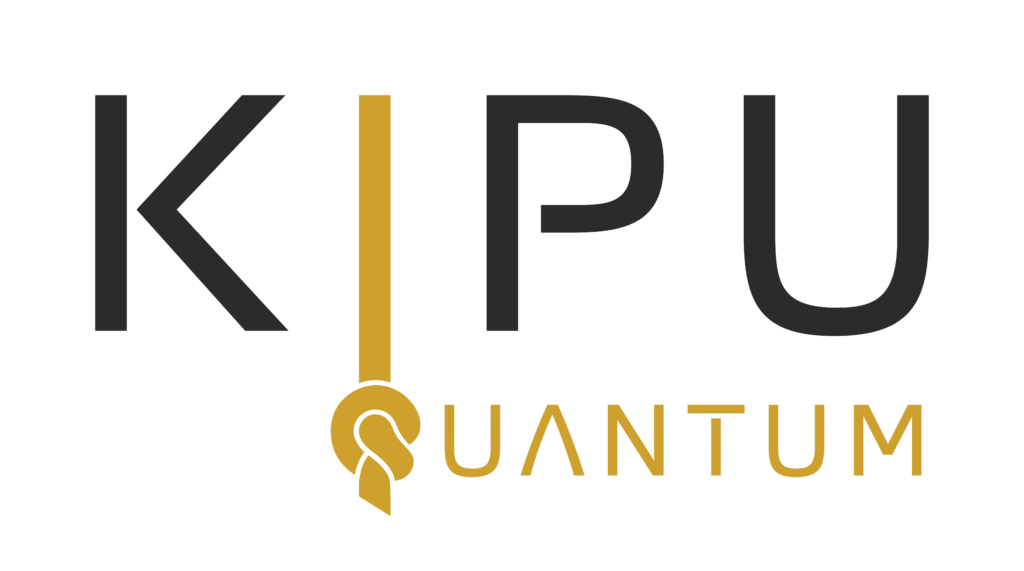Quantum computing stocks are a new type of investment that is gaining popularity among investors. As more people become aware of quantum stocks and their potential benefits, it is likely that they will become more widely accepted and adopted by the investment community. Before you invest in quantum computing stocks, there are a few key things you should know that we will be discussing today.
Disclaimer: This article does not represent financial advice and readers should do their own research. Article last updated in November 2022.
One of the reasons we first came into being was a frustration with the lack of commercial information on the quantum technology industry. At the time (2019), it was very difficult for an ordinary investor to get direct exposure through pure play quantum computing stocks. We even did a deep-dive into how to get indirect exposure through an investment in a significant stakeholder in D-Wave!
Since then we have seen more interest in quantum technology stocks – indeed there’s several general investor website articles providing a high-level overview. It’s well overdue for The Quantum Insider to chime in with a more comprehensive list of the quantum computing stocks to invest in.

To find out more about the wider quantum technology industry, please visit our industry intelligence platform.
Why invest in quantum computing?
Quantum Computers leverage the principles of quantum mechanics to create new, powerful ways to perform computations. Quantum technology should be viewed as a critical enabler for industries in the future with applications including better methods of drug discovery and modelling financial markets.
Nonetheless, the quantum industry is still in a very early stage. Almost all the companies outlined in this article are yet to generate material revenue from quantum technology. Over the past decade these companies have been growing out of research labs, taking on both government and private financing from quantum investors and committing to fundamental research to develop truly novel technologies.
An investment in any of these quantum computing stocks relies on a fundamental judgement call: that we can build useful quantum computers.
24 Quantum Computing Stocks to Invest In
Exchange-Traded Funds (ETFs)
1. Defiance ETF QTUM
Definance’s Quantum ETF debuted in 2018 promising investors exposure to the quantum computing thematic trends. Exchange Traded Funds (ETF) are traded on exchanges and have unique ticker symbols to track their prices. ETFs represent a basket of stocks (i.e. multiple companies).
The underlying index of this ETF is called the BlueStar quantum computing and Machine Learning Index (BQTUM). It tracks approximately 71 globally-listed stocks across all market capitalizations.
“The BlueStar quantum computing and Machine Learning Index is a rules-based index comprised of equity securities of leading global companies engaged in the research & development or commercialization of systems and materials used in quantum computing: advanced traditional computing hardware, high powered computing data connectivity solutions and cooling systems, and companies that specialize in the perception, collection and management of heterogeneous big data used in machine learning.” – Defiance Website
The index claims that it “only includes companies that generate at least 50% of their revenue from products and services related to quantum computing or machine learning”. QTUM was recently featured in a Barrons article covering quantum computing stocks.
Pure Play Quantum Computing Stocks
Since we last covered quantum stocks, we’ve seen the opening and slowing down of the SPAC craze. For all its challenges and criticisms, this brief period enabled the listing of three quantum companies, with one more (D-Wave) set for later in 2024.
2. IonQ (NASDAQ: IONQ)
IonQ was founded in 2015 by Christopher Monroe and Jungsang Kim with a license to core technology from the University of Maryland and Duke University. The business builds quantum computers with its core Ion Trap technology and currently offers these direct to select partners or through quantum computing as a Service Providers (QCaaS) such as Google (GCP), Microsoft (Azure) and Amazon (AWS) as referenced below. It achieved a listing through a SPAC merger on 1 October 2021.
3. Rigetti (NASDAQ: RGTI)
Rigetti was founded in 2013 by Chad Rigetti and claims to be the first “universal” quantum computing company. The business builds superconducting quantum computers and delivers them through its own cloud services platform and through QCaaS providers. It achieved a listing through a SPAC merger on 2 March 2022.
4. Quantum Computing Inc (NASDAQ: QUBT)
Quantum Computing Inc (QCI) was founded in 2018 with a vision to make quantum computing technology more accessible for non-quantum experts. Its core product, “Qatalyst”, is a ready-to-run quantum and classical software for optimization computations.
5. Archer (ASX:AXE)
Archer Materials is an Australian material technology company that serves the quantum technology and human health markets. In quantum technology it is developing a qubit processor chip that could potentially operate at room temperature (many qubit modalities require significant cooling). The business was founded in 2007 (when it had a broader set of business offerings) but has since focused more in on its two key markets.
6. D-Wave (coming soon via SPAC merger)
D-Wave is a Canadian quantum computing company that was founded in 1999. The business launched the D-Wave One in 2011, which is described as the first commercially available quantum computer. Whilst historically D-Wave systems have focused on quantum annealing the business announced it was also working on gate-based quantum computation in late 2021. In 2022 the company announced its intention to go public via SPAC merger.
7. Quantinuum (coming soon?)
Quantinuum is the product of a combination between Cambridge Quantum, a British quantum software and OS company, and Honeywell Quantum Solutions (HQS), which has been carved out of U.S. parent company Honeywell (specializes in building Ion Trap quantum computers). It is widely touted as a likely IPO candidate with a listing expected in 2024.
Quantum Security Stocks
A sufficiently powerful Quantum Computer may be able to intercept many forms of modern communication we currently take for granted as being provably secure. Quantum Security refers to both (i) using new types of cryptographic protocols and algorithms that are thought to be secure against a Quantum Computer and (ii) using fundamental quantum mechanical principles to secure data. You can find out more about quantum security here [quantum security market report]. Whilst not developing quantum computers, the existence of these companies intrinsically depends on the creation of quantum computers.
8. Arqit (NASDAQ: ARQQ)
Arqit is a quantum security company founded in 2016 and headquartered in London, UK. The business went public through a SPAC earlier this year and is now publicly traded. Arqit provides SaaS Quantum encryption solutions. We understand that their source of entropy will eventually be from a satellite and symmetric key data will be stored in global data-centers. Their focus has been on building corporate partnerships with blue-chip clients.
9. Quantum eMotion (TSXV: QNC)
Quantum eMotion is a Montreal-based developer of Quantum Random Number Generators (QRNGs) founded in 2017. QRNGs are hardware components that leverage the intrinsic unpredictability of quantum mechanics. Their purpose is to create pure randomness to ensure encrypted communication is “unhackable”. The business recently announced a patent issuance in China.
Large tech stocks with Quantum Divisions
If you want to back some of the more established big-tech players, there are several companies who have quantum divisions within their organization. One important point that is often not sufficiently called out in many articles is that you are getting very limited exposure to quantum computing through investment in any of these companies – these should not strictly be treated as quantum computing stocks. Almost all of the quantum computing stocks below generate trivial or zero revenue from such offerings today (and are better thought of as long-term R&D projects to enable future business divisions) – for example you shouldn’t forget that Google makes its money from advertising and cloud services. With that said, if the quantum computing addressable market lives up to the hype, having a position in one of these could be a reasonable bet.
10. Alibaba Group Holding Ltd. (HKG: 9988)
Alibaba is working on the design and implementation of quantum processors, quantum memory, and quantum computing systems through its research labs. Relatively little detail is publicly available beyond this.
11. Alphabet Inc (NASDAQ: GOOGL)
Google sparked headlines in 2019 with its Quantum Supremacy announcement where it demonstrated that it could solve a specific, contrived problem faster than any known traditional (classical) computer. In March 2022, Sandbox AQ announced it was spinning out of Alphabet. Therefore, Google’s operations in quantum technology are focused on its hardware division, part of Google AI. This business unit is focused on building a fault tolerant superconducting quantum computer. Google also offers access to Quantum Computers such as IonQ’s through GCP, as well as Cirq, an open source framework for programming quantum computers.
12. Amazon.com Inc. (NASDAQ: AMZN)
Amazon has three Quantum Computing related operations. Firstly, Amazon Bracket, a managed service that allows customers to begin experimenting with computers from multiple quantum hardware providers in a single place (QCaaS). Secondly, its AWS Center for Quantum Computing, a research center adjacent to Caltech that is focused on research into quantum computing hardware and software. Finally, Amazon Quantum Solutions Lab, a program to connect AWS customers with quantum computing experts from Amazon and consulting partners.
13. Atos (EPA: ATO)
Atos Quantum offers a quantum simulation platform instead of offering a fully functional quantum computer. The Atos Quantum Learning Machine (Atos QLM) is an on-premise environment designed for quantum software developers. It is dedicated to the development of quantum software, training and experimentation. It embeds a programming platform and a high-performance quantum simulator which is the size of a box (rather than needing access to a super computer).
14. Baidu (HKG: 9888)
Baidu Research has an Institute for Quantum Computing. The company’s focus is on researching Quantum Artificial Intelligence (AI), and integrating quantum technologies into Baidu’s core business. The business has general interests in Quantum Information Science with three research priority topics: Quantum AI, Quantum Algorithm, and Quantum Architecture. Baidu does not currently appear to offer any internal quantum hardware; instead preferring to building up the other interfaces (e.g. access to QCs) and algorithms.
15. Fujitsu (TYO: 6702)
Fujitsu focuses on providing a Digital Annealer. This is an alternative to quantum computing technology that uses a digital circuit design inspired by quantum phenomena. The business focuses on rapidly solving complex combinatorial optimization problems without the added complications and costs typically associated with quantum computing methods. This approach is described as “Quantum-Inspired” however we understand Fujitsu is monitoring whether it should actively get involved in leveraging Quantum Computers.
16. Hitachi (TYO: 6501)
Hitachi is primarily focused on fundamental research into quantum information science. The Quantum Information Team at Hitachi Cambridge Laboratory is exploring spin qubits (and cryo-CMOS) to build quantum computers. HCL’s research projects include investigations on spintronics, quantum information, and quantum optics and biosensors. HCL’s members, meanwhile, have impressively produced more than 500 publications over the last thirty years.
17. Intel (NASDAQ: INTC)
Intel Labs is producing quantum processors in Oregon and performing system-level engineering that targets production-level quantum computing over the next 10 years. Whilst the business was originally focused on superconducting qubits in line with IBM and Google, Intel have turned their attention to silicon spin qubits which could benefit from the existing tool-fabrication infrastructure. Intel is doing pioneering work with QuTech (Netherlands based research institute) into chip manufacturing.
18. International Business Machines Corp. (NYSE: IBM)
IBM has been a pioneer in providing cloud access to its superconducting quantum computers and we understand it has the largest number of operational Quantum Computers in the world (20 in their company locations plus many more worldwide). The business offers users access to 1-qubit and 5-qubit QPUs (and simulators) for free. Paying customers can access their 27 qubit (Falcon) and 127 qubit (Eagle) processors.
19. Microsoft Corp. (NASDAQ: MSFT)
Microsoft is attacking quantum computing from multiple angles. The business is doing fundamental research into topological qubits that are theorized to be inherently stable, as well as work on other roadblocks to scalable quantum computing. Beyond longer term goals, Microsoft offers an SDK called Q# and its Azure Cloud platform enables access to several Quantum Computers. Microsoft’s CVC M12 Ventures hold a stake in PsiQuantum.
20. NEC (TYO: 6701)
NEC is aiming to establish practical applications for quantum annealing machines, which are a type of quantum computer. In addition NEC is developing annealing simulators based on vector computers that can handle large-scale combinatorial optimization problems.
21. Nvidia Corp. (NASDAQ: NVDA)
Nvidia is known for its Graphics Processing Units (GPUs) that are facing increasing demand from use cases such as artificial intelligence and deep learning. In March 2022, the business announced the launch of commercially available tools through cuQuantum to help run complex quantum circuit simulations and improve compiler tools. NVIDIA is not building its own Quantum Computer and is instead actively partnering with companies like Google and IBM.
22. Taiwan Semiconductor Manufacturing Co. Ltd. (TPE: 2330)
Information on TSMC’s role in quantum computing is relatively limited but several sources point to the semiconductor maker working on special projects to develop quantum processors as supported and encouraged by the Taiwanese government.
23. Toshiba (TYO: 6502)
Toshiba is focused on Quantum Key Distribution, one of the approaches to ensuring security from future advances in mathematics and computing, particularly quantum computing. The business already offers several QKD systems commercially and has grabbed headlines with several milestones in this arena, for example a quantum secured commercial metro network across London.
We understand that Honeywell International Inc. no longer has direct exposure to quantum computing since the carve-out of its Quantum Solutions Division and merger with Cambridge quantum computing.
Listed investment funds
24. Quantum Exponential (QBIT:PZ)
Quantum Exponential started trading on the AQSE Growth Market in November 2021. Quantum Exponential is assembling a portfolio of potential investments in leading Quantum technology companies around the world. The publicly traded investment fund announced an investment in Siloton in March 2022.
Disclaimer: This article does not represent financial advice and readers should do their own research. Article last updated in mid April 2022.
If you found this article to be informative, you can explore more current quantum news here, exclusives, interviews, and podcasts.















